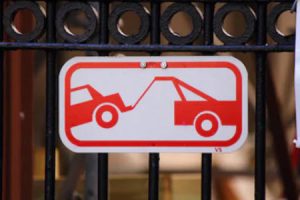Illegal Car Repossession in Illinois

All of Illinois’ car repossession laws can be found in 225 ILCS 422 of the Illinois legal code. These laws define what are and are not legal means of recovering a vehicle on which a borrower has defaulted.
How Repossession Works
When you purchase a vehicle, the loan you take out is secured by the vehicle itself. When you sign your loan agreement, you give the creditor the right to take back the vehicle if you default on the loan. They can also come after you for the deficiency balance between the amount of money they expected to receive from the loan agreement and the amount of money they recover when they sell the car at auction.
However, lenders and the repo men that they employ can’t simply do whatever they want. In this article, we’ll discuss the legal limits of a creditor’s right to repossess a vehicle.
Legal vs. Illegal Repo Tactics
Before a creditor can legally remove a vehicle from your property or off the street, they must be able to prove that you signed a loan contract for the vehicle they are going to repossess. Under no circumstances is a creditor allowed to seize a vehicle for the purpose of recovering another debt. They are only entitled to the car.
Some clever folks think that they can hide the vehicle on another street or prevent the repo man from accessing the vehicle. This, however, is illegal. Despite that fact, the repo man may not destroy your property to access the vehicle, nor can they break into your home. They could, however, go into an open garage or remove the vehicle from a driveway.
Repo men are prohibited from destroying property or otherwise breaching the peace. They may not threaten or intimidate you, nor may they act violently toward you. If they destroy property to access a vehicle, they can be held liable both civilly and criminally.
Late Payments and Defaults
For the majority of auto lenders, the best-case scenario is that the borrower makes all of the payments on time over the loan period. Failing that, the lender would prefer the borrower makes all the payments. This can result in a situation where the lender accepts late payments but then gets fed up and declares the loan in default. If they repossess the vehicle, they must serve notice to the borrower and give the borrower 21 days to buy the vehicle outright.
If the lender has a history of accepting late payments, they may not be able to argue before the court that your loan was in default at the time of the repossession. This is because they led the borrower to believe that the loan was fine.
Talk to a Chicago Bankruptcy Attorney Today
If you’re in a difficult financial situation right now, the Chicago bankruptcy attorneys at Bentz Holguin Law Firm, LLC can help you divest your liabilities and create a stable foundation on which to plan your future. Call today for details.
https://bentzholguinlaw.com/do-i-lose-my-security-clearance-if-i-file-bankruptcy/


